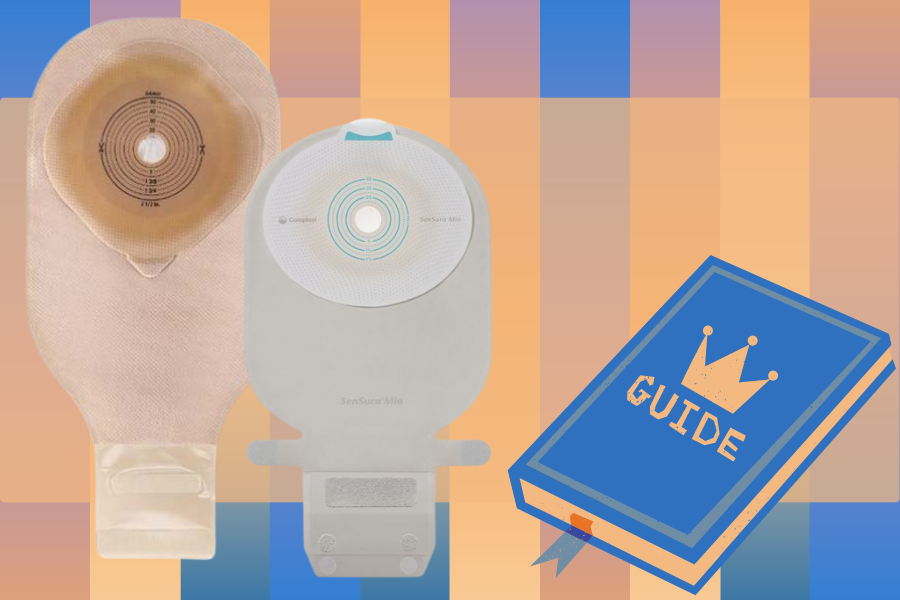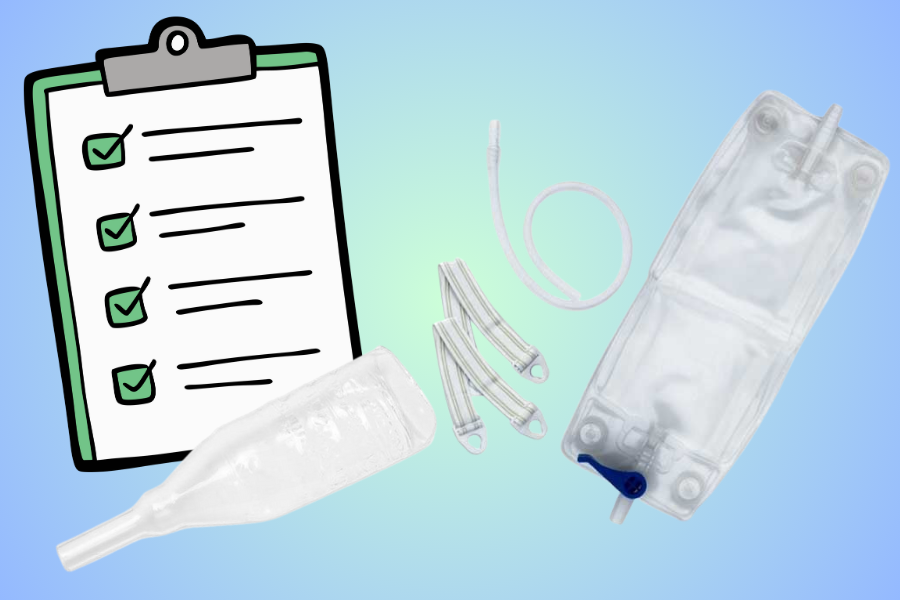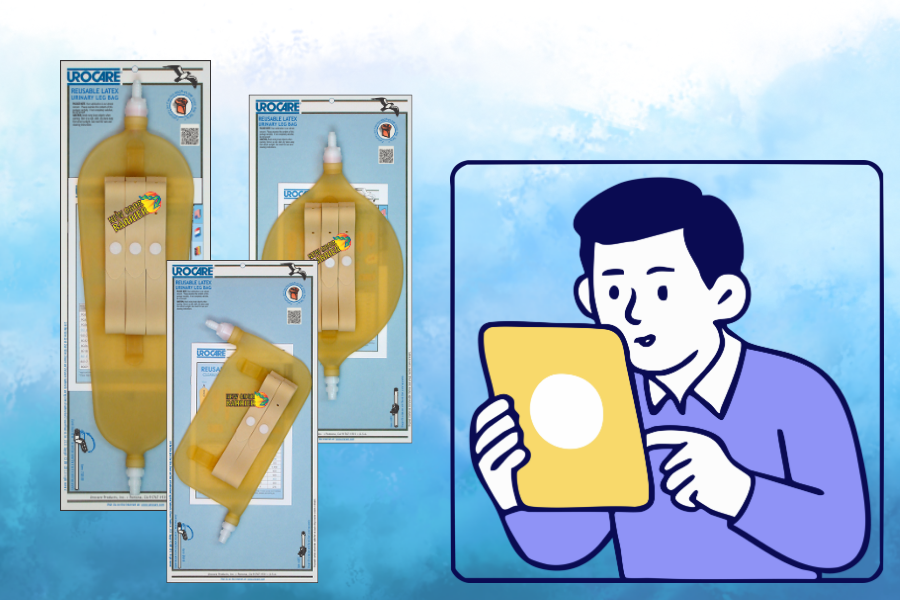Living with a Urinary Tract Infection (UTI)

A urinary tract infection (UTI) is a very common condition that affects the urinary tract. The urinary system is made up of the urethra, ureters, bladders, and kidneys. Urinary tract infections most commonly occur in the urethra and/or bladder.
With UTIs, bacteria multiply in the urinary system, causing swelling and pain. If left untreated, urinary tract infections can lead to serious complications, such as kidney damage and pyelonephritis.
How Are UTIs Diagnosed?
Urinary tract infections can affect the lower or the upper urinary tract. Lower-tract UTIs refer to infections of the bladder or urethra. Upper-tract UTIs refer to infections of the ureters or kidneys. Upper tract UTIs are more rare and usually more severe.
Although occurring less often than in adults, children can develop urinary tract infections as well. Infants born with urinary tract abnormalities have an increased risk of UTIs.
A UTI is typically diagnosed based on the patient’s medical history, a physical exam, and a urine test. An abnormally high number of white blood cells in the urine can indicate an infection. If an upper-tract UTI is suspected, additional blood tests may be required.
Additional tests may be prescribed in individuals with recurring infections.
What Are the Causes and Symptoms of UTIs?
The majority of UTIs are caused by bacteria, though they may also be caused by fungi or viruses.
The symptoms of a urinary tract infection usually depend on which part of the urinary system is infected. Lower-tract UTIs typically manifest in the strong, frequent urge to urinate, cloudy or bloody urine, a burning sensation when urinating, and bright red or pink-colored urine.
Common symptoms of upper-tract UTIs include pain in the lower back, nausea, fever, chills, and vomiting.
A urinary tract infection in men may also cause rectal pain. In women, lower tract UTIs can lead to pelvic pain.
In children, symptoms of UTIs are easily overlooked. Parents are advised to to be aware of any signs of irritability, frequent and/or painful urination, strong odor to the urine, pain around the belly button, and unusual day or night wetting. If infants experience a burning sensation or pain, they may cry when urinating. If the UTI has spread to the kidneys, the child may also have high fever and back pain.
UTI Causes and Risk Factors
UTIs are typically caused by bacteria that has enter the body through the urethra. Although anyone can develop a UTI, women are at a greater risk.
Most urinary tract infections affect the lower urinary tract (bladder and urethra).
Bladder UTIs – also referred to as cystitis – are commonly caused by bacteria called Escherichia coli (E. coli). E. coli can easily travel from the area around the anus to the opening of the urethra. Sexual activity may lead to cystitis, though that is not always the case. In general, all women are at risk of a bladder UTI due to the short distance between the anus, urethral opening, and bladder.
Urethral UTIs (or urethritis) occur when gastrointestinal bacteria spread from the anus to the urethra. Because of their anatomy, women can develop urethritis due to sexually transmitted infections, such as chlamydia, gonorrhea, and herpes. The bacteria that causes these infections is contagious to sexual partners.
Women who are sexually active, pregnant, use diaphragm as contraception, or have gone through menopause are also more prone to UTIs.
Men with enlarged prostates are prone to urinary tract infections.
Risk factors for UTIs include a decreased immune system, blockages in the urinary tract, and urinary tract surgeries. People with diabetes, spinal cord injuries, and people who regularly use urinary catheters are at a higher risk.
Are Urinary Tract Infections Contagious?
A UTI is not a sexually transmitted disease (STD) and cannot be transmitted from one individual to another. The infection-causing bacteria, however, can be. Sexual activities can increase the chances of bacteria entering the urinary system. Bacteria from the other person’s fingers, genitals, or anus may get pushed into the urethra and cause a urinary tract infection.
Having intercourse while experiencing a mild UTI (not caused by an STD) is possible but not recommended. People are generally suggested to wait until they have fully recovered from the infection before engaging in sexual activities, as having intercouse increases the risk of bacteria entering the body.
Urinary Tract Infection Treatment
UTI treatment depends on the cause of infection. Most UTIs are caused by bacteria and are traditionally treated with antibiotics. Viral UTIs are typically treated with antivirals, while fungal UTIs are treated with antifungal medications.
In most cases, people with a lower-tract UTI are prescribed oral antibiotics. Upper-tract UTIs are more difficult to treat and require intravenous antibiotics. While antibiotics fight the infection right away, they cannot stop all the symptoms immediately. If a UTI is causing a great deal of discomfort, your doctor may recommend medication to help relieve the pain and bladder spasms.
The medication type and dosage will depend on your response to treatment and the severity of your symptoms. Some people may only require medication for a few days, but in most cases, antibiotics need to be taken for 1-2 weeks. Even if you are feeling better, do not stop taking your medication earlier than prescribed as this may prevent the medication from completely killing the bacteria.
Alternative methods – such as probiotics and certain foods – may help to clear the infection quicker and can be added to thetreatment for urinary tract infection.
Drinking unsweetened cranberry juice is one of the most popular natural UTI remedies. Cranberries can be helpful in preventing bacteria from sticking to the urinary tract though it is not recommended to people using blood-thinning medications.
When to Seek Medical Care for a UTI
UTIs are extremely common, but if not treated promptly, they can spread and cause a serious kidney infection. If you have – or suspect that you have – a urinary tract infection, schedule an appointment with a healthcare professional as soon as possible.
It is important to inform your doctor whether your UTI symptoms do not improve after a few days of treatment, or if they continue after you have finished your course of prescription medicine.
UTIs can occasionally cause complications, especially in individuals with upper-tract UTIs or suppressed immune systems. These may include sepsis (a potentially life-threatening condition) and kidney damage or failure. In men, it may result in an inflamed prostate and narrowing of the urethra.
How to Prevent a UTI
Practicing good hygiene habits is essential for preventing urinary tract infections.
You can reduce the risk of developing a UTI by drinking plenty of fluids, as well as wiping from front to back after urinating and bowel movements. Avoid holding urine for long periods of time. Prolonged exposure to moisture in the genital area – such as a wet swimsuit – should also be avoided.
Sexually active people are recommended to empty their bladder both before and after intercourse, as well as washing the genital area after sex.
Women should avoid using feminine products such as douches or sprays in the genital area, as this can potentially irritate the urethra.
Home remedies may help to prevent UTIs from reoccurring. These may include food rich in vitamin C (kiwi, oranges, grapefruit, red peppers), as well as natural supplements (garlic extract, cranberry extract).
Coping with Urinary Tract Infections
Urinary tract infections are painful and uncomfortable. For many, they are also a recurring problem that disrupts daily activities. Take proactive steps and discuss alternative long-term solutions if your current treatment plan is not providing relief.
Seeking medical care at the first sign of an infection is one of the best ways to take control of your health.
Check out our medical blog for more information, practical tips, and product reviews!






